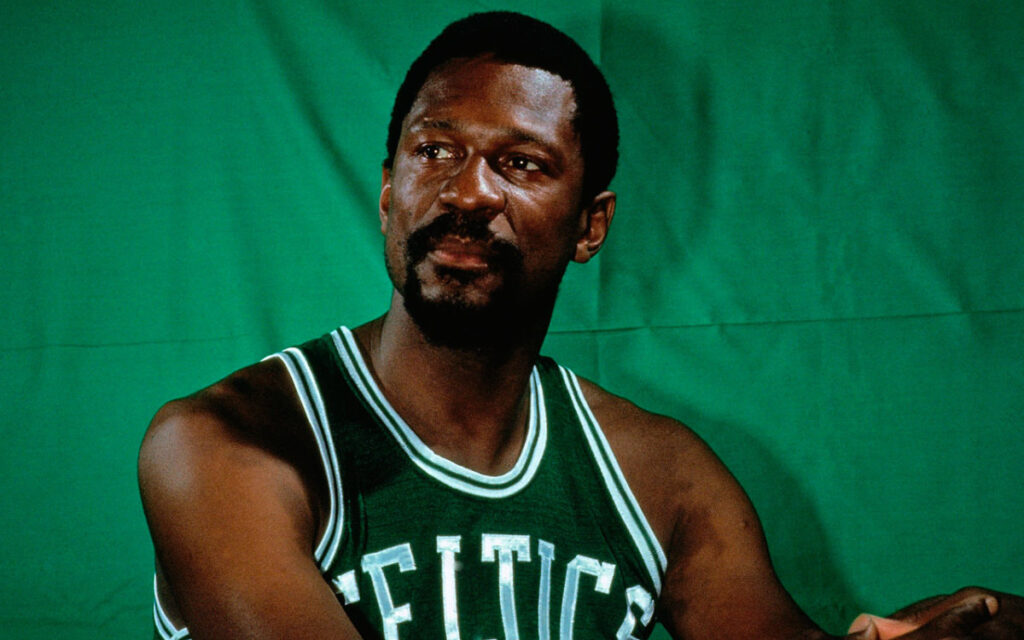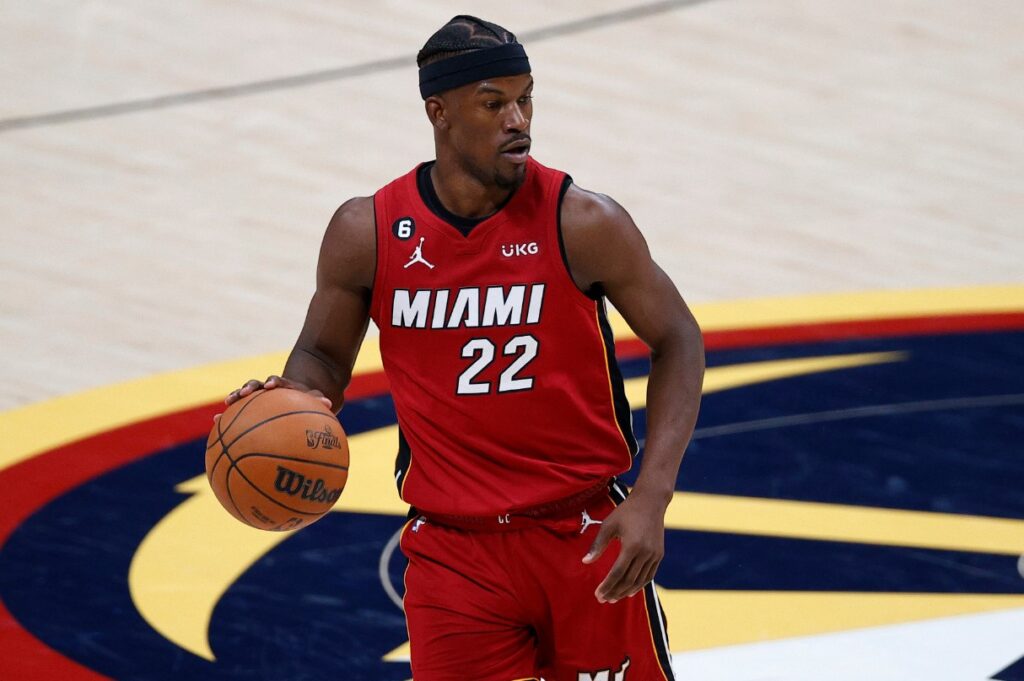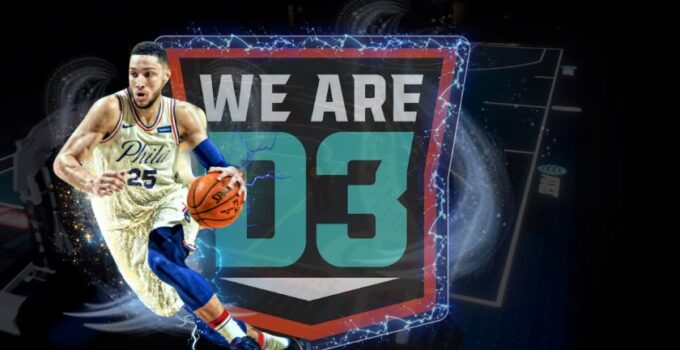Only 1.2% of NCAA men’s basketball players will go on to play professionally in the NBA, a figure that shrinks even further when zooming in on Division III (D3) athletes. Yet, within that sliver of a percentile, certain D3 Basketball Players in the NBA have emerged, carving out laudable basketball careers that defy the expected norm.
This phenomenon highlights not just a few NBA success stories, but a compelling narrative about player progression from small-scale collegiate programs to the glitz and glamour of the world’s premier basketball league.
The transition from D3 to the NBA is a tale of raw talent fusing with relentless determination. These players begin their journey far from the spotlight that bathes their Division I peers, necessitating a level of perseverance and skill development that few can muster.
Their stories, often tagged as anomalies, have become symbols of inspiration, altering the trajectory of what is possible for a D3 athlete aiming for the pinnacle of basketball success.
Key Takeaways
- The remarkable journeys of D3 basketball players to the NBA, against overwhelming odds, underscore the vast potential within these athletes.
- NBA success stories of D3 players serve as a testament to their skill, perseverance, and indomitable spirit.
- Despite starting outside of the limelight, D3 athletes have managed to forge notable basketball careers at the top level.
- The phenomenon of D3 players making it to the NBA speaks to the importance of continuous improvement and opportunity in professional sports.
- These trailblazing talents challenge the perception of D3 basketball, reflecting a broader scope of talent identification and player progression in the sport.
- The progress and achievements of D3 basketball players in the NBA pave the way for future generations of underrated athletes.
The Unlikely Path From D3 to NBA Stardom
The journey of Division III basketball athletes to the prestigious stages of the NBA is a fascinating story of willpower and exceptionalism. Despite facing an uphill climb due to prevalent stereotypes, a select few have showcased an unwavering spirit and basketball talent that demystifies the traditional D3 to NBA transition.
Indeed, these stories contribute to enriching NBA history as they demonstrate the potential for stardom that exists at every level of collegiate sports.
Breaking Down the Stereotypes of D3 Players
At the heart of the underdog narrative lies the challenge of dispelling myths that surround D3 athletes. Often perceived to lack elite capabilities or the higher ceiling of their Division I counterparts, these players find themselves battling preconceptions before they even step onto a professional court. The transcendent tales of individuals who overcome these stigmas not only speak to their personal resolve but also to the shifting perceptions within the basketball world itself.
Notable Success Stories of D3 Players in the NBA
Every now and then, the world of basketball is enthralled by D3 players who make the improbable leap to NBA stardom. These are the trailblazers who reshape the narrative, inspiring the next generation.
The likes of Duncan Robinson, who fought his way from Williams College to the Miami Heat, stand as embodiments of the dream that drives countless D3 hopefuls. Such resonant success stories have not only turned heads but they’ve also forged a renewed respect for talents honed outside of the Division I limelight.
Challenges Faced and Overcome by D3 Athletes
While physical and technical barriers are inherent to all athletes, D3 individuals encounter a unique set of challenges as they aim for professional success.
Whether it’s convincing scouts of their potential or working twice as hard to gain recognition, the journey is fraught with tests that require resilience and relentless refinement of their craft. The growth experienced through these adversities often leads to stronger, more adaptable players prepared to seize their chance when the spotlight finds them.
D3 Basketball Players in the NBA: In 2024 & Through History

Source: vault.si.com
The journey and influence of D3 athletes on the professional basketball scene exemplifies an inspiring bridge from humble origins to the heights of the NBA. The landscape of D3 basketball has historically produced players who have not only entered the NBA but have also left an indelible mark on its history.
Let’s delve into the contribution of these resilient athletes and their ongoing legacy within the league.
Bill Russell stands as a towering testament to the impact a D3 athlete can have on the NBA. With numerous championships and a career filled with remarkable statistical feats, Russell’s legacy exemplifies that D3 athletes can indeed evolve into legends on the world’s foremost basketball stage.
Drawing inspiration from such legends, the new guard of D3 talent in 2024 continues to chase their dreams, fueled by the examples set by their predecessors.
“Every season writes a new chapter in the history of D3 athletes in the NBA. From unsung heroes to household names, their stories of perseverance and success challenge the narrative of professional basketball success.”
Contemporary D3 players arriving in the league come equipped with not just skills honed in quieter gyms but also an unyielding dedication that often characterizes the underdog. This intangible quality has become an asset that NBA teams value, with scouts and coaches consistently on the lookout for the next D3 standout capable of breaking the mold.
Indeed, as these determined athletes continue to break barriers and defy the odds, they pave a path for those to follow—a path that says ‘hard work, talent, and determination knows no divisional boundaries’.
Key Factors in D3 Players’ NBA Transition
The journey from Division III basketball to the National Basketball Association is filled with both challenges and opportunities. For D3 athletes dreaming of NBA success stories and stable basketball careers, a strategic approach in various aspects is essential. The following segments discuss pivotal elements that facilitate this significant transition.
Importance of Mentorship and Training
Mentorship is a cornerstone in the development of any athlete. The experience, knowledge, and support from seasoned professionals provide D3 athletes with the framework necessary for progress.
Renowned figures like coach John Lucas serve as exemplary mentors, whose influence extends into the very fabric of NBA training techniques and personal player development. Comprehensive training regimens are tailored to optimize physical abilities while enhancing the tactical understanding of the game.
The Role of Perseverance and Determination

Source: bvmsports.com
Perseverance and determination form the psychological backbone that empowers D3 athletes to push through setbacks and break barriers.
The rigorous journey of basketball legends such as Anthony Davis, who overcame self-doubt, and Kevin Garnett, who channeled adversity into motivational fuel, illustrate the impact of a resilient mindset. It is the unwavering commitment to personal and professional growth that defines their NBA readiness.
Adapting to the Pace and Physicality of the NBA
Surviving in the NBA calls for more than skill alone. D3 athletes must adapt to a game that is quicker, more intense, and more physically demanding.
This adaptation involves both mental agility to make split-second decisions and physical endurance to withstand the rigorous schedule of an NBA season. Continuous conditioning and strategic play readjustments are paramount in closing the gap between the D3 and NBA playing standards.
Scouting and Recruitment: Discovering D3 Gems
The journey from Division III (D3) basketball to the National Basketball Association (NBA) is a road less traveled, but one that uncovers some of the most tenacious and talented players in the league.
As the search for the next generation of NBA talent becomes increasingly competitive, scouts have turned their attention to the untapped potential within D3 programs. These players may not have the same level of exposure as their D1 counterparts, but what D3 Basketball Players in the NBA lack in visibility, they make up for in basketball talent and player progression.
How NBA Scouts Identify D3 Talent
NBA scouts employ a meticulous strategy when it comes to identifying D3 talent. They analyze various aspects of a player’s game, including fundamental skills, basketball IQ, and the ability to adapt to different playing styles.
Scouts frequently visit small college games, keeping an eye out for standout performers who exhibit the drive and skillset required to compete at the professional level.
The Role of Summer Leagues and Training Camps
The summer months are crucial for D3 basketball players, as this period offers the premier stage to showcase their capabilities. Summer leagues and training camps are critical for player progression, as they provide a platform for these athletes to prove themselves against higher-caliber opponents.
It is here that D3 athletes can secure invitations to participate in renowned showcases and catch the eye of NBA scouts and executives.
Ivy Leaguers in the NBA: A Closer Look
While not traditionally known for their basketball programs, the Ivy League has produced NBA players who exemplify the type of basketball talent scholastic institutions can offer.
These players are often well-rounded individuals with the intellect to understand complex playbooks and the adaptability to fit into various team dynamics. Their presence in the NBA underscores the fact that D3 schools are viable reservoirs of professional-level talent.
Navigating the Prejudices: D3 Player Perceptions in Professional Basketball
The road from D3 basketball to the NBA is often paved with stereotypes that typecast players as inferior in talent and achievement compared to their Division I cohorts.
These D3 athletes regularly confront not just the high standards of physical prowess and technical skill expected in the NBA, but also endure the daunting psychological challenges associated with the underdog label. Success in this environment demands that D3 athletes vigorously dispel these biases by magnifying their capabilities and value on the court.
Historical instances of successful D3 to NBA transitions break the mold of expectation, but the journey remains an uphill battle. As they enter the professional basketball arena, D3 players are often misjudged due to the perceived limitations of their collegiate playing ground.
Nonetheless, through grit and tenacity, they strive to reshape the narrative around D3 basketball, illustrating that skill and determination can eclipse the presumed advantages of a higher-division pedigree.
- Exemplify D3 athletes’ competence through consistent on-court performance
- Highlight the success stories of D3 athletes in the NBA to mitigate skepticism
- Emphasize the importance of mental fortitude and self-belief for players making the D3 to NBA transition
These strategies are crucial for D3 athletes, not only in their personal quest for professional success but also in expanding the scope of what talent scouts and teams consider as pools of potential NBA candidates.
Navigating through and overcoming the prejudices associated with professional basketball demands a multifaceted effort inclusive of community support, media attention, and the relentless pursuit of excellence at every turn.
Case Study: The Trail of Success Left by D3 Athletes
Through an in-depth exploration of the personal growth and achievements of former D3 basketball players who have made it to the NBA, a unique story of ambition and accomplishment emerges. By comparing these athletes to their D1 and D2 peers, it becomes evident that they possess a distinctive brand of tenacity and skill that leaves an indelible mark on the NBA landscape.
Analyzing the Career Trajectories of Former D3 Players
D3 basketball players have historically forged paths characterized by player progression against notable odds. Their professional journeys offer profound insight into the sheer willpower and adaptability needed to transition from D3 to the NBA.
Notable players have shifted the NBA history, creating their own legacies through hard-fought careers and dispelling myths about the limitations of non-D1 athletes.
Comparative Analysis with D1 and D2 Athletes
| Aspect | D1 Athletes | D2 Athletes | D3 Athletes |
|---|---|---|---|
| Exposure to Scouts | High | Moderate | Low |
| Physicality and Pace | Often NBA-ready | Varies | Development necessary |
| Perceived Potential | Well-recognized | Recognized with notable performances | Often under-recognized |
| Breakout Likelihood | Expected | Possible | Underrated |
Impact on Future Generations of D3 Players
The achievements of D3 alumni in the NBA fuel the dreams and ambitions of upcoming D3 basketball talents. These pioneers serve not only as role models but as proof that the underdog can have their day, influencing player progression from the D3 ranks to professional courts.
Their triumphs resonate deeply within the D3 community, promising prospective athletes that their NBA aspirations are valid and attainable.
Training and Skill Development for D3 Basketball Players
The journey of D3 athletes towards carving out successful basketball careers and potentially joining the ranks of NBA success stories is underpinned by rigorous training and relentless skill development.
To bridge the gap between Division III and the professional league, these athletes must often cultivate their prowess outside of the spotlight, honing their abilities with a level of drive and precision that rivals their Division I counterparts.
Focused skill enhancement and athletic conditioning lay the foundation for D3 players’ transition into the NBA. It’s a meticulous process that requires dedication to improving not only their physical attributes but also their understanding of the game’s strategic intricacies and mental demands.
Consider the structured approach necessary for D3 players to excel:
- Technical Skill Mastery: Essential for in-game efficiency and effectiveness on the court.
- Physical Conditioning: Building endurance and strength to withstand a grueling NBA schedule.
- Game Intelligence: Understanding complex plays and making split-second decisions under pressure.
- Adaptability: Ability to quickly adjust to different styles of play and opponents’ strategies.
These aspects coalesce in forging a player ready to meet the NBA’s challenges head-on, as exemplified by the memorable transitions witnessed within the league.
| Component | Focus Area | Outcome |
|---|---|---|
| Technical Drills | Shooting, Dribbling, Passing | Enhanced on-court skills |
| Strength Training | Weightlifting, Core Workouts | Increased physicality and injury prevention |
| Mental Preparation | Film Study, Visualization | Improved game anticipation and mental toughness |
| Scrimmages | High-intensity intra-squad games | Real-game scenario practice |
In the competitive cauldron of professional basketball, D3 athletes are examples of what can be achieved with determination and the right developmental environment. Transforming from a D3 athlete to an NBA player is no small feat, but it is attainable with the dedication to training and a relentless commitment to getting better every day.
Overcoming the Odds: The Psychological Journey of D3 NBA Players
The D3 to NBA transition involves more than just physical training; the mental toughness and psychological resilience required are fundamental to the success of basketball careers at the highest level.
For D3 players, who often begin their journey away from the spotlight, this evolution is marked by significant psychological growth and the development of effective coping strategies.
The Mental Challenges of Competing at the Highest Level
Transitioning from a D3 college team to the NBA presents a host of mental challenges for athletes. These individuals must navigate the complexities of competing against players who have had more exposure and oftentimes more resources at their disposal.
The mental game for these emerging stars involves overcoming doubts and maintaining focus amidst the intense pressure and scrutiny of professional sports.
Building Confidence: From Underdog to NBA Player
Confidence on the court is earned through consistent performance and the continual belief in one’s abilities. D3 athletes must instill within themselves an unshakeable confidence to compete with and outperform players from more traditionally recognized programs. This self-belief propels them from the underdog status to respected NBA professionals.
Coping Mechanisms and Mental Toughness
Fostering mental toughness is crucial for D3 athletes aiming to sustain a long-term career in the NBA. Coping mechanisms such as visualization, mindfulness, and strategic rest contribute to an athlete’s ability to bounce back from setbacks and manage the high-stakes environment of professional basketball.
- Mental resilience training
- Peer support and mentorship
- Goal setting and performance review
The journey from D3 athletics to the NBA is as much about mental preparation and fortitude as it is about physical prowess, and those who excel at both can carve out significant basketball careers. The stories of D3 athletes who have made this demanding transition continue to inspire and shape the landscape of professional basketball today.
Economic Aspects: D3 Players’ Contracts and Earnings
Within the professional basketball arena, the financial aspects corroborate a player’s progression from a collegiate athlete to an NBA professional. For D3 players, the NBA presents not only a stage for athletic performance but also a space for fiscal evolution.
The commencement of their NBA careers starts with contract negotiations that are modest in comparison to first-round draft picks from D1 schools. However, these contracts are dynamic, with room for improvement as the players showcase their capabilities and accrue accolades.
Contract Negotiations and Salary Comparisons
When addressing contracts and earnings of NBA players who hail from D3 schools, it’s essential to highlight that their salary figures often mirror the discreet nature of their collegiate basketball exploits. Yet, as a testament to their player progression, these athletes are poised to negotiate increasingly lucrative contracts.
Comparable to their D1 peers, who enter the league with higher salaries, D3 players require adept navigation of financial management to leverage their skill advancements for better compensation.
Endorsement Deals and Sponsorships
Beyond the basketball court, endorsement deals and sponsorships serve as an extension of an NBA player’s brand and revenue streams. For D3 athletes in the NBA, such deals are pivotal in enhancing their financial portfolio and public image.
By aligning with brands that are synergistic to their journey and ethos, these players elevate their visibility, transforming their once overshadowed status into a commercially viable and influential presence.
Financial Management and Investment Strategies
Lastly, the sophistication of financial management and the implementation of astute investment strategies are central to securing the long-term financial health of NBA players from D3 backgrounds.
With the propensity for dramatic shifts in income, these athletes are encouraged to engage with financial advisors to cultivate a portfolio that sustains their wealth well beyond their playing days. In doing so, they fortify their personal and professional legacies, underscoring their remarkable leaps from humble collegiate beginnings to fully-fledged NBA entities.
FAQ
Have any D3 basketball players made it to the NBA?
Yes, there have been several players who began their basketball careers at Division III schools and eventually made it to the NBA. Though infrequent, these success stories highlight the players’ skill, determination, and perseverance.
What challenges do D3 basketball players face in their NBA transition?
D3 players often face stereotypes that cast doubt on their basketball talent and potential due to the lower profile of D3 collegiate programs. They have to prove themselves against players from higher divisions and overcome limited exposure and resources.
How are D3 basketball talents discovered by NBA teams?
NBA teams have scouts specifically tasked with uncovering hidden talent across all college divisions. They attend games, monitor performance in summer leagues and training camps, and even look for standout players in international tournaments.
Can D3 basketball players receive the same level of training as D1 athletes?
While D3 programs may not have the same level of resources as D1 schools, determined players often find ways to access high-quality training, sometimes through external programs, personal coaches, or mentorships with NBA professionals.
What role does mental toughness play in a D3 basketball player’s NBA career?
Mental toughness is crucial for D3 players transitioning to the NBA. They must maintain confidence despite the underdog label, handle the pressures of competing at the highest level, and build resilience against setbacks and challenges.
Are there any NBA success stories of players who started in D3 programs?
Yes, there are several inspiring NBA success stories of players who started at D3 programs. Their journeys are characterized by hard work, personal growth, and eventual recognition at the professional level.
How do NBA teams evaluate the potential of a D3 basketball player?
NBA teams evaluate a D3 player’s potential through a combination of analytics, performance in competitive settings like summer leagues, their physical attributes, work ethic, and how well their skills can translate to the professional game.
What economic opportunities arise for D3 basketball players who make it to the NBA?
Players who transition from D3 to the NBA can see a significant increase in earning potential through their contracts, performance incentives, and endorsement deals. As they establish themselves, they may also pursue various investment strategies.
Do D3 basketball players need to follow a different path to the NBA compared to D1 players?
Yes, the path to the NBA for D3 players often requires additional steps such as standout performances in non-college leagues, personal initiatives in training and skill development, and leveraging any available opportunities to showcase their talent.
How is the D3 to NBA transition different today compared to the past?
The landscape of basketball has evolved with more robust scouting networks and advanced performance analytics, providing D3 players with greater opportunities and visibility. This change, along with social media and digital platforms, has made the D3 to NBA transition more accessible compared to the past.

